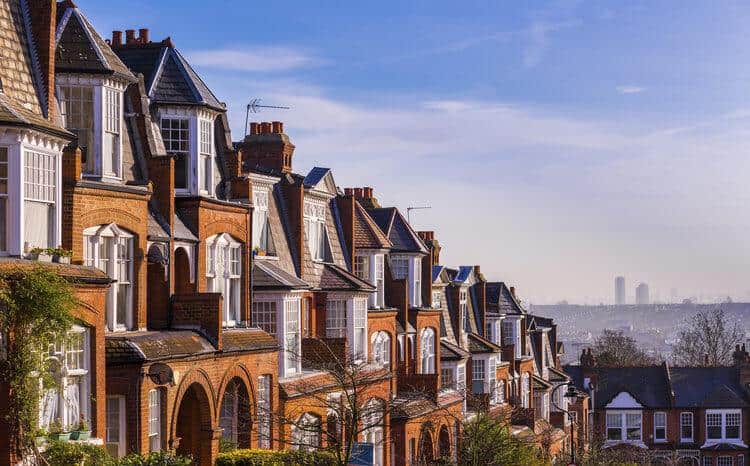Questions to ask a mortgage broker
Finding a mortgage broker to work with can be daunting, and it can be hard to know what to look out for when choosing one. However, being prepared and doing your research is key. This guide outlines 10 questions to ask your mortgage broker.

Are you a regulated broker?
It’s important to check if your mortgage broker is regulated.
Firstly, using a regulated mortgage broker gives you peace of mind. It means that the broker is authorised and supervised by the Financial Conduct Authority (FCA), the regulatory body that oversees financial services in the UK. This means they have to adhere to strict rules and regulations, designed to protect consumers like you.
Secondly, using a regulated mortgage broker ensures that you’re dealing with a professional who is qualified and competent. The FCA sets high standards for brokers, including their qualifications, experience, and ongoing professional development.
Using a regulated mortgage broker gives you access to the Financial Ombudsman Service (FOS) and the Financial Services Compensation Scheme (FSCS). If anything goes wrong with your mortgage application or if you have any complaints, you have recourse to these services for resolution and potential compensation.
Are you whole of market broker?
It’s important to ask your mortgage broker about the number of lenders they work with and whether they are “whole of market” or not. Mortgage brokers who work with a limited panel of lenders may not have access to the full range of mortgage products available in the market, which could limit your options and potentially result in missing out on the most suitable deal for your needs.
A mortgage broker who is “whole of market” has access to a wide range of lenders and their mortgage products, which means they can offer you a more comprehensive and unbiased selection of options based on your specific financial situation and requirements. This increases the likelihood of finding a mortgage deal that fits your needs and potentially saves you money in the long run.
How much do you charge?
The fees that mortgage brokers charge for their services vary. They typically range between £200 – £500; however, they can vary, and some brokers charge a percentage of the loan amount, e.g., 0.5% of the mortgage balance.
Some mortgage brokers do not charge a fee and instead receive commission from the lender. If a fee is payable, it’s important to ask when it’s charged, as some brokers charge for advice, while others charge on application, offer, or completion.
How much can I borrow?
A natural starting point in the mortgage process is determining how much you can borrow. This will help you understand the amount you can afford to spend on a new property or when remortgaging an existing one.
While you may not choose to borrow the maximum amount possible, it’s beneficial to know the scope of borrowing options available to you. This can provide you with a clear understanding of your budget and help you make informed decisions about your mortgage and property purchase or remortgage strategy.
How much deposit will I need?
As well as understanding how much you can borrow, it’s equally important to know how much deposit you will need. Putting down a larger deposit can have several benefits.
Firstly, it may open up more affordable mortgage options, as lenders often offer better interest rates and terms for borrowers with higher deposits. This can result in lower monthly mortgage payments and potentially save you money over the life of your mortgage.
What’s the best mortgage deal for me?
Determining the best mortgage deal for your individual needs depends on your preferences and circumstances. A mortgage broker can be a valuable resource in helping you understand and compare the various options available to you.
A mortgage broker can provide expert advice on different mortgage terms, such as how long you can take a mortgage over and what term may suit you best. They can also explain the differences between fixed and variable rate mortgages, as well as other repayment options, and help you determine which type of mortgage aligns with your financial goals and risk tolerance.
- Fixed-rate mortgages: Interest rate remains fixed for a set period, providing stability.
- Variable-rate mortgages: Interest rate can fluctuate over time based on external factors.
- Tracker mortgages: Interest rate tracks a specific benchmark, such as the Bank of England base rate.
- Discounted rate mortgages: Offer a discount on the lender’s standard variable rate for a set period.
- Offset mortgages: Allow borrowers to offset their savings against their mortgage balance to reduce interest payments.
- Cashback mortgages: Offer cashback incentives or rewards to borrowers.
What Lender fees are there and when are they payable?
Some mortgages offer products with fees, also known as arrangement fees or upfront fees, while others do not. Mortgages with fees often come with lower interest rates compared to those without fees.
This means that while you may need to pay an upfront fee to the lender, you may be able to secure a lower interest rate, resulting in potentially lower monthly mortgage payments over the life of the mortgage.
A mortgage broker can provide advice on whether you have the option to add the fees to the mortgage, and whether it is advisable to do so based on your individual circumstances.
What Documents do I need?
When working with a mortgage broker, it’s important to inquire about the specific documents you will need to provide, as they may vary based on your employment status and income.
Speak To an Expert
Whether you’ve just had an offer accepted on a property and you’re ready to go, or you’re simply wondering how much you need to save for a deposit, it’s never too soon to reach out.
How long will the process take?
Asking your mortgage broker about the expected timeline for securing an agreement in principle (AIP) and the overall application to offer times can help you better plan your home buying process.
The timeline can vary depending on various factors, including the lender’s processing times, the complexity of your application, and any third-party factors involved. Your mortgage broker can provide an estimate based on their experience and knowledge of the current market conditions.
It’s also a good idea to inquire about the overall timeline for the home buying process, as it involves multiple steps, such as property search, offer acceptance, legal and conveyancing processes, and completion.
While these timelines can also vary, your mortgage broker can give you a general idea to help you manage your expectations and plan accordingly, keeping in mind that unforeseen delays may occur during the process, especially if you’re in a property chain.
What are the costs of buying?
When working with a mortgage broker, it’s essential to ask about the various costs associated with buying a property. Here are some key costs to ask your mortgage broker about:
- Mortgage broker fees: Mortgage brokers may charge a fee for their services, and it’s important to understand the amount and when it’s payable.
- Stamp duty: Stamp duty is a tax imposed on property purchases over a certain threshold, and the amount varies depending on the property value and location.
- Surveys: Surveys are conducted to assess the condition and value of a property, and the cost can vary depending on the type and scope of the survey.
- Estate agency fees: If you’re selling a property, estate agency fees may apply, and it’s crucial to understand the percentage or flat fee charged by the estate agent.
- Solicitor costs: Solicitors or conveyancers handle the legal aspects of buying a property, and their fees can vary depending on the complexity of the transaction.
- Valuation fees: Lenders may require a valuation of the property, and this cost may be incurred by the buyer.
It’s essential to ask your mortgage broker about these costs upfront and factor them into your budget when planning to buy a property to avoid any surprises during the process.
Do you Recommend any solicitors and surveyors?
It’s a good idea to ask your mortgage broker if they have any recommended solicitors and surveyors they work with. Mortgage brokers often have established relationships with solicitors and surveyors, and they may be able to provide recommendations based on their experience and knowledge of the industry.
What level of service should I expect?
It’s important to gather information from your mortgage broker to ensure they meet your expectations and requirements.
Here are some questions you may want to ask:
- Availability: Ask about the availability of your mortgage broker. Ask about their working hours, response time to queries, and availability for meetings or phone calls. This will help you gauge their accessibility and responsiveness.
- Communication: Discuss how your mortgage broker communicates with their clients. Ask if they prefer email, phone, or in-person meetings, and how often they provide updates on your mortgage application progress.
- Point of Contact: Clarify if your mortgage broker will be your main point of contact throughout the entire mortgage application process, or if you will be passed onto someone else after the initial application. Knowing who to contact and how to communicate with them will help streamline the process.
- Customer Reviews: Request information about customer reviews on platforms such as Google, Trustpilot, or other review websites. This will give you insights into the experiences of previous clients and help you assess the broker’s reputation and service quality.
- Additional Services: Ask about any additional services your mortgage broker may offer, such as financial planning, insurance, or other related services that may be beneficial to you.
By asking these questions, you can gain a better understanding of your mortgage broker’s availability, communication style, customer reviews, and additional services they may provide, which can help you make an informed decision when choosing a mortgage broker for your needs.
For more info on choosing a mortgage broker, please contact a member of the Strive team, by emailing info@strivemortgages.co.uk or call us on 01273 002697.




